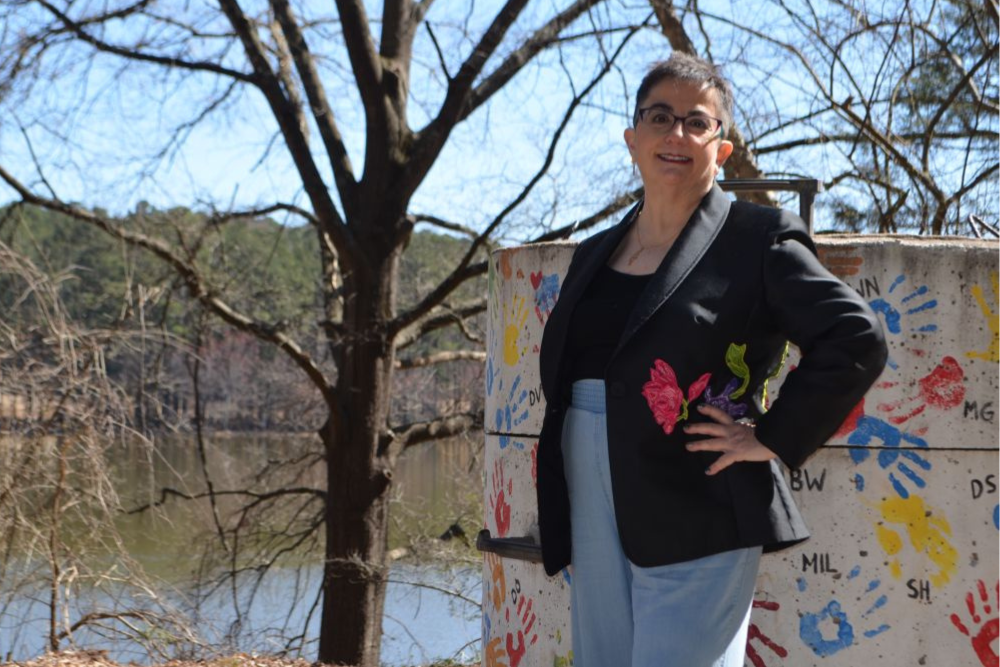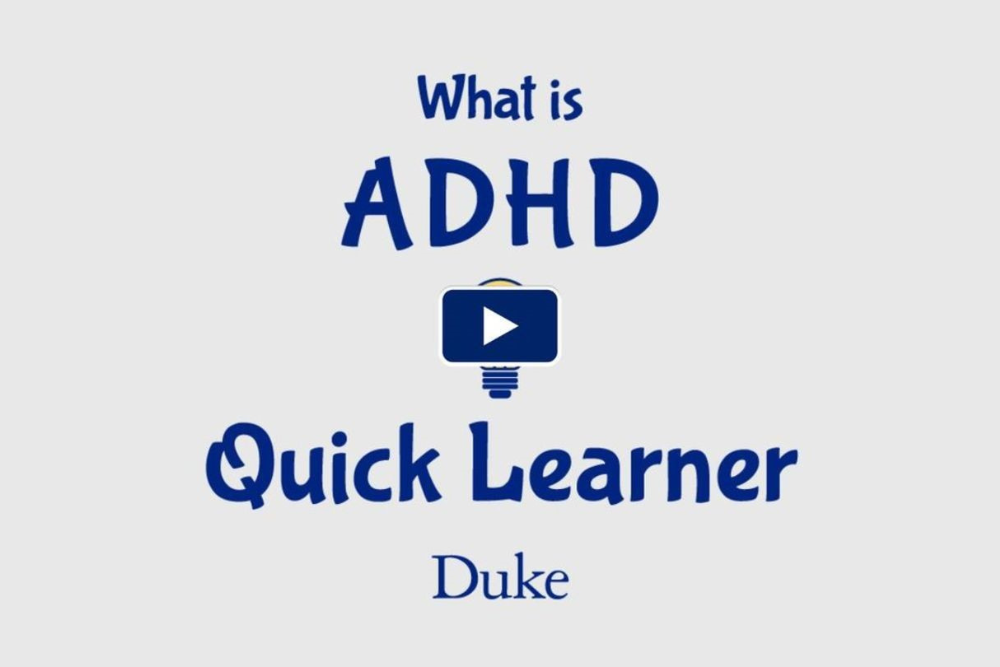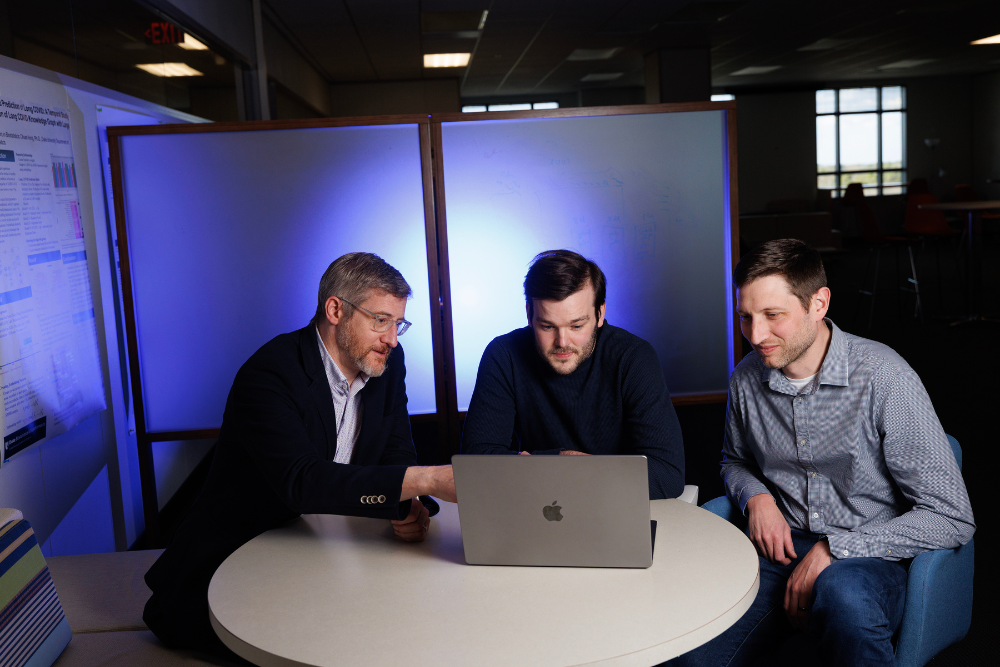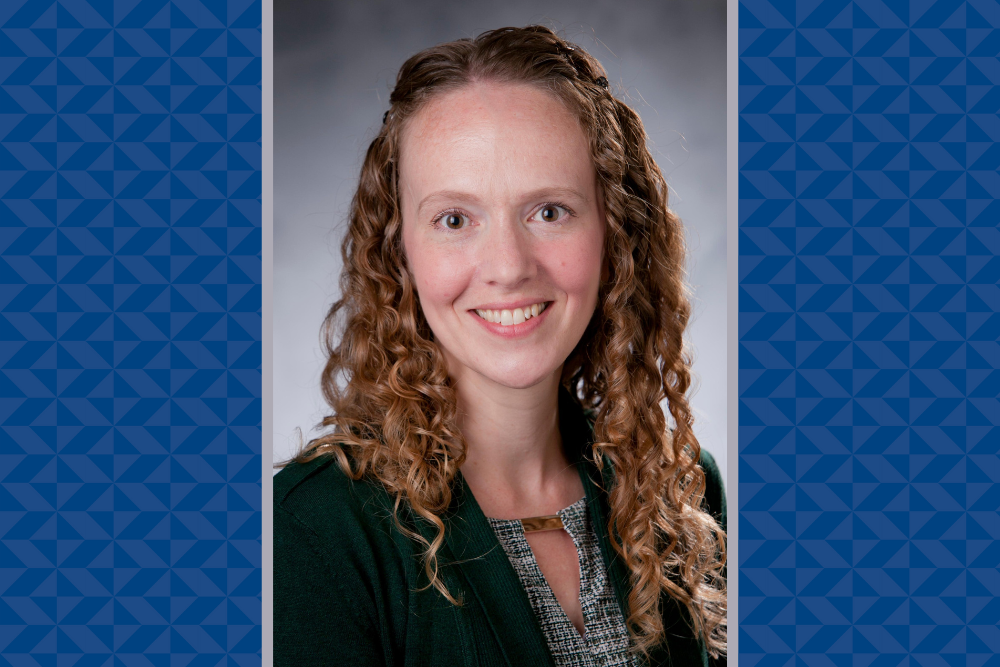Check out our news archive below to learn more about what’s happening in Duke Psychiatry & Behavioral Sciences!
What Is the Autism Spectrum: Quick Learner Video
Anyone can be autistic. You probably know a friend, family member, or co-worker who is autistic. Autism is a neurodevelopmental condition that affects how people communicate and interact, and how a person’s brain develops and functions, from infancy through adulthood. On Autism Awareness Day, this Quick Learner video from Duke University and the Duke Center for Autism and Brain Development explains the autism spectrum.
Duke Health Opens Transcranial Magnetic Stimulation Clinic for Treatment-Resistant Conditions
In January, Duke Health opened a transcranial magnetic stimulation (TMS) clinic at Duke Regional Hospital. TMS is primarily used to treat major depressive disorder but has also proven effective in treating obsessive-compulsive disorder and helping people quit smoking. Duke Psychiatry's Jacob Feigal, MD, is the clinic’s medical director.
Two Duke Psychiatry Faculty Awarded Distinguished Professorships
Duke University has awarded distinguished professorships to 32 faculty, including 17 from the School of Medicine. Two of them—Gary Maslow, MD, MPH, and department chair Moira Rynn, MD—are members of the Department of Psychiatry & Behavioral Sciences.
Providing Spiritually-Informed Care to Muslim Patients during Ramadan & Beyond
Psychiatry residents Abdelrahman Ibrahim, MBBS, and Adam Howard, MD, ScM, and assistant professor Hiba Zaidi, MBBS, are developing strategies to help Duke’s health system better respond to the religious considerations of Muslim patients, particularly in the behavioral health environment. Their efforts include providing guidance on accommodating patients during Ramadan and improving access to clothing appropriate for Muslim patients on psychiatric units.
Riding the ADHD Rollercoaster
ADHD shows up differently in women than in men; it’s often coupled with anxiety and depression. And the number of women diagnosed with ADHD is on the rise. Research also finds that hormones may affect how ADHD impacts women.
Duke Researchers Point out Error in U.S. Estimates of Dementia
In their recent JAMA article, “Changing Story of the Dementia Epidemic,” Duke University researchers, P.J. Eric Stallard, ASA, MAAA, FCA, Svetlana V. Ukraintseva, PhD, and Murali Doraiswamy, MBBS, FRCP, point out a crucial error in prior in U.S. estimates of dementia. Stallard and Doraiswamy discuss the research in this Q&A.
Quick Learner: What is ADHD?
Symptoms of Attention-Deficit/Hyperactivity Disorder (ADHD), which could include challenges with inattention or compulsive behaviors, first arise in childhood. Check out this video to learn more about ADHD, a condition affecting how the brain grows and develops, and when to seek help—and what Duke's Center for Girls & Women with ADHD is doing to support this population's particular needs.
AI Model Predicts Risks and Potential Causes of Adolescent Mental Illness
An artificial intelligence (AI) model developed by Duke researchers accurately predicted when adolescents were at high risk for future serious mental health issues before symptoms become severe. Unlike prior models that primarily rely on existing symptoms, the AI model identified underlying causes, such as sleep disturbances and family conflict, that could be used to prescribe interventions. Duke Psychiatry's Jonathan Posner, MD, was senior author of the study.
Maggie Sweitzer Named Psychiatry Clinical Research Unit Director
Maggie Sweitzer, PhD, has been named director of the Department of Psychiatry & Behavioral Sciences’ Clinical Research Unit (CRU). She'll be responsible for ensuring the integrity, financial accountability, regulatory compliance, quality, and academic productivity of clinical and translational human subject research within the unit.
Staff Spotlight: Henry Edmonds’ Past & Present Roles Are All Rooted in Social Justice
Henry Edmonds, an outreach program coordinator at the Duke-UNC Alzheimer’s Disease Research Center since 2022, takes pride in his success with increasing African American participation in the center’s studies. Prior to his current role, he served for 20 years in a similar position with the Bryan Alzheimer’s Disease Research Center in the Department of Neurology.









